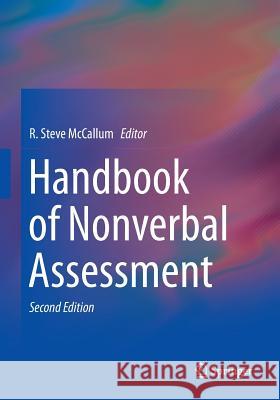Handbook of Nonverbal Assessment » książka
topmenu
Handbook of Nonverbal Assessment
ISBN-13: 9783319844398 / Angielski / Miękka / 2018 / 320 str.
Kategorie:
Kategorie BISAC:
Wydawca:
Springer
Język:
Angielski
ISBN-13:
9783319844398
Rok wydania:
2018
Wydanie:
Softcover Repri
Ilość stron:
320
Waga:
0.58 kg
Wymiary:
25.4 x 17.78 x 1.78
Oprawa:
Miękka
Wolumenów:
01
Dodatkowe informacje:
Wydanie ilustrowane











